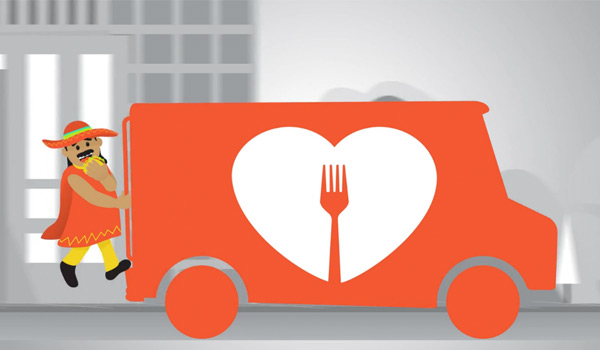Last Updated on December 25, 2012 by New-Startups Team
2012 felt like the coming of age of food trucks. The once destined place for post-party goers to salivate over fat sandwiches and grease riddled 4th meals of the day is now a daylong enjoyment for everyone. Feeding lunchtime appetites with gourmet deliciousness from the convenience of a kitchen on wheels, food trucks are the most pleasant surprise to go mainstream of the past year.

However, unless you’re an avid Twitter fanatic or are meeting with the trucks regularly to find out where and when they’ll be next, keeping up with your favorite eats is still a problem. And if you’re visiting a foreign city trying to find the “Flying Pig” food truck it inevitably will be realized it’s an incredibly impossible task. The reasons for this are many, for one those driving food trucks may not be tech savvy enough to keep up with the changing mobile climate or the platforms are city specific and there isn’t a consistent usable solution for food truckers and eaters alike.
Kansas City natives Derek Kean and Matthew Berkland are trying to change that and hopefully they will with their new app: Truckily. With backgrounds in digital marketing and software architecture, the two entered ARK, a mentoring program and accelerator in Arkansas to simplify the user experience of finding a food truck via a mobile app and creating a marketing software designed by food truck owners for food truck owners. With the idea to provide food truck seekers with up-to-date information on location, eats and treats without having to be stalking on Twitter, Truckily is building a tool that is easy to use for food truck owners to stay connected with customers.
Their model sees food truck owners paying a monthly subscription fee to utilize the software, while allowing eaters to use it for free. Users see descriptions, photos, menus, payment options and dietary information along with truck locations (organized according to geographic proximity and food preferences). With rollout tentatively planned for Kansas City in January or February, if successful it could mark at end to food truck scouring. However, its still too early to see if it will be adopted and if the chefs behind the food will actually use the service and will update it constantly enough to keep it useful. Here’s hoping they do.
